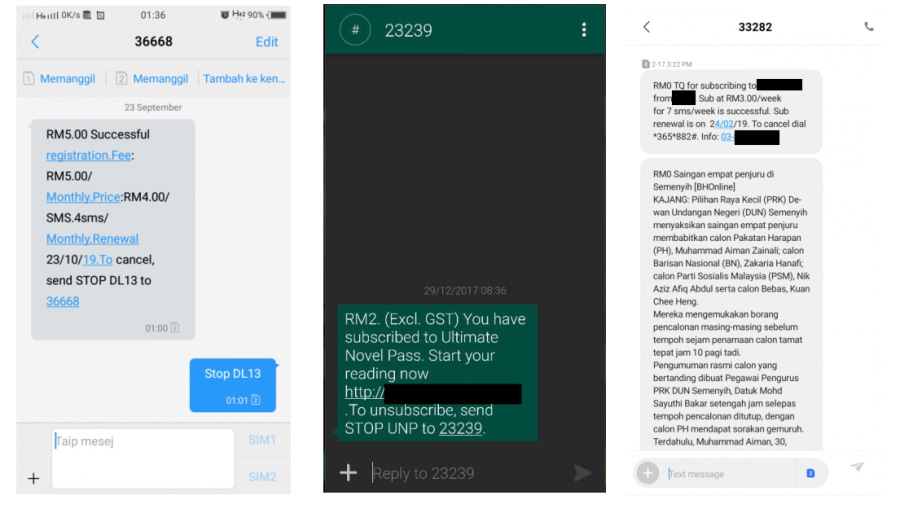The Ministry of Communications and Digital (K-KOMM) has issued a directive to all telecommunications companies (telcos) to block any URL links delivered through short message service (SMS). This was revealed by its deputy minister Teo Nie Ching to reporters after appearing as a guest on Ai FM in conjunction with the 77th anniversary celebration of Radio Televisyen Malaysia (RTM) on Saturday, 1 April 2023.
Teo said that the order was issued through the Malaysian Communications and Multimedia Commission (MCMC), with hopes that the implementation would further combat potential scams. This is by ensuring that no users would mistakenly click on bogus links, assuming that they are legitimate.
“Several online scams happen when people mistakenly press on the link, and after giving their personal information, they find themselves being scammed,” she explained. However, the K-KOMM deputy minister noted that the directive is expected to come into effect in phases, and hoped that involved telcos would be able to implement it soon.

As you’d expect, blocking links would remove the ability for users to click it altogether, rendering it useless. Implementing this could potentially reduce the amount of scams that rely on the approach, as well as serving as a reminder to users to question the legitimacy of links that are included in any SMS notifications.
Meanwhile, blocking URLs could also cause difficulties to the telcos themselves, given the fact that they have been relying on the service to issue out notices for bill payments or promotions to its customers. These often come with links that lead users to the related pages on the telco’s website as a form of convenience. Regardless, the implementation of this new directive would end this practice for not only telcos, but for banks and government services as well.

Even though such changes are capable of impeding scam attempts, it would still take a lot more to completely discourage malicious individuals from preying on unsuspecting victims. As it stands, scammers are still actively using phone calls, emails, and alternative messaging services such as WhatsApp and Telegram to phish important information. That being said, we would like to remind our readers to always remain vigilant, and not hesitate to report to authorities if you suspect that you’ve fallen victim to a scam.
(Source: The Vibes)
Follow us on Instagram, Facebook, Twitter or Telegram for more updates and breaking news.



